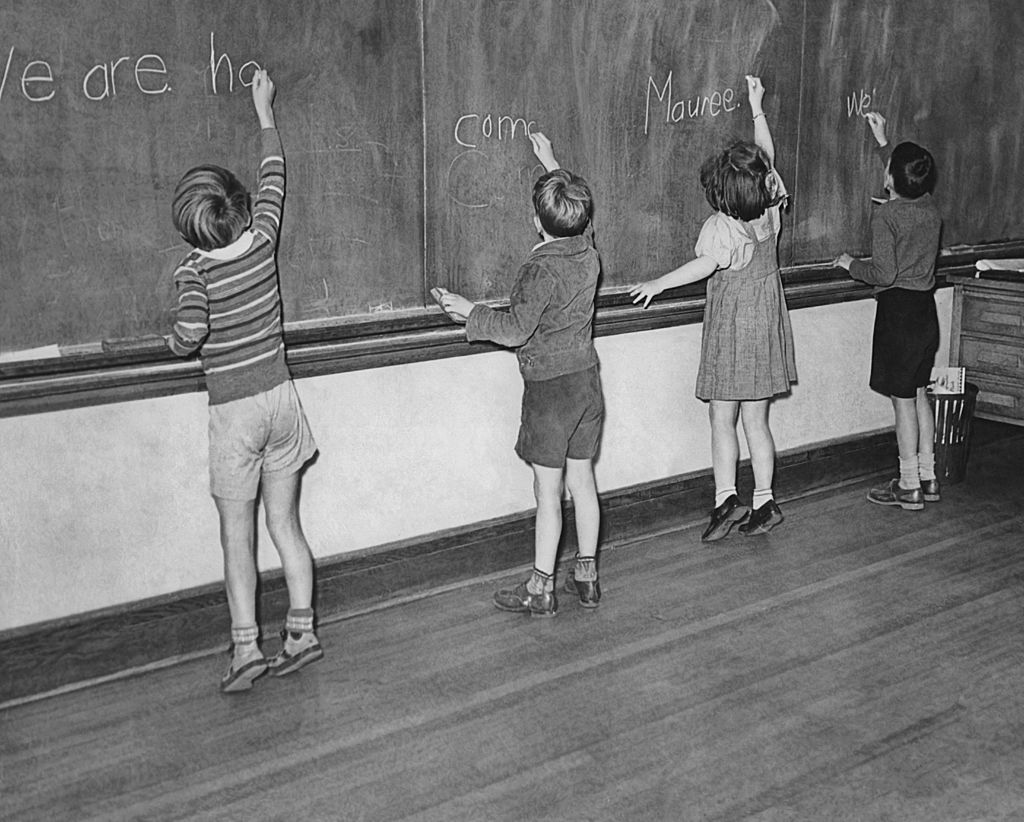The English language as written today is often nearly incomprehensible on first reading, and as spoken almost unintelligible and unpleasant to the point where the civilized listener disengages himself in frustration and disgust from the speaker and his speech. The problem in the first instance is the readiness of people who know better to embrace demotic usage in semi-formal literary venues, such as respectable journalism; the second, the bizarre combination of pretension and illiteracy and its results, the jargon and barbarisms ubiquitous in the 21st century.
One example pertaining to written English is the labored use of nouns to do the work of adjectives that, in the case of serial nouns especially, leaves the reader uncertain of what the actual subject is, and hence what the predicate is going to be. Another and more serious one is the omission of the substantival ‘that’ that is frequently fatal to clarity and meaning (cf. A Dictionary of Modern English Usage, by H.W. Fowler), while the deliberate refusal to distinguish between nominative and objective pronouns — e.g. putting ‘who’ for ‘whom’ — and splitting one’s infinitives grate on the ears of educated speakers, though the practices generally do nothing to diminish clarity of meaning. In the matter of spoken English employed in relatively formal usage, as on television or radio, the culprits are untutored ignorance, intellectual pretension, and a fondness for the absurd linguistic coinages that crop up overnight like mushrooms — ‘gaslighting’ is a recent example — and are subsequently flogged to death thereafter while being left unexplained by smug pseudo-sophisticates in the business.
Most remarkable, however, is the impression one has from watching the evening news shows that nearly everyone on camera is speaking English as a second language. The majority of anchors and their guests seem particularly ignorant of the most ordinary usage and long-familiar colloquialisms and idioms — always and everywhere the sure sign of persons for whom the language is not their native tongue. In recent weeks, I have heard on Fox News programs alone ‘isolated to’ for ‘limited to’; ‘placating to’ for ‘placating’; ‘from every political stripe’ for ‘of every…[etc.]’; ‘you’ll be discriminated’ for ‘you’ll be discriminated against’; ‘to the president’s point of view’ for ‘in the president’s point of view’; and ‘you’ll be trained into’ for ‘you’ll be trained to’. ‘Take a listen’ is a linguistic abomination unheard of outside a television studio; it does not seem to exist in the vernacular. The use of an adjective bereft of its following noun — e.g. ‘a hypothetical’ — goes unquestioned. So does ‘fraught’ minus a specified prepositional object. But what is the editor of a prominent American newspaper thinking when he allows a contributor to write of ‘a Trump return to the White House’? Often writers and editors seem determined to reduce the number of words they use in a sentence to a minimum while breaking every recognized rule to do so, but here the difference is one of a single letter. And how, and why, has ‘to advocate’ been replaced by ‘to advocate for’? — an obvious barbarism if there ever was one. Does the second really sound that much better to the postmodern ear ‘untrained into’ Latin?
It is inevitable, acceptable, necessary and good that languages should change. There is no linguistic reason why Englishmen in the 21st century should be speaking the language of Chaucer or Dr Johnson or Queen Victoria. Nor has there ever been a defensible argument against American English’s inevitable divergence from British English. But change should occur easily and unconsciously from natural usage, not self-consciously and deliberately (let alone dishonestly) from ideological or financial motives as is happening in the present hyper-demotic age when political demagogues flatter a semi-literate public by adopting their speech in order to win their votes, journalists do likewise to sell their newspapers and improve their television ratings, and advertising firms to put over their clients’ products to the masses.
There has never been an English or an American equivalent of the Académie française, and there never will be. The English-speaking peoples simply do not think that way, nor is there any necessary reason why they should do so. (In the battle for the English language in the late 19th century, Henry James and William Dean Howells lost out to Mark Twain, and early in the following century to Ernest Hemingway.) That, indeed, is a major reason why they should be solicitous of their language today, if only for the sake of the precision and reliability that clarity requires and meaning depends upon — the exact qualities, as it happens, that scientists demand and politicians insist that they value and promote. Writers and speakers of English on both sides of the Atlantic regularly point to George Orwell’s prose style as a model of modern English usage while generally ignoring or flouting his compositional and rhetorical rules, as well as his political message.
Demotists and linguistic democrats claim that English as spoken by the common man is actually correct English, and that formal English as spoken and written by educated people is incorrect. Nevertheless, it is an observable fact that highly literate persons are adept at employing any one of a range of linguistic registers suitable to the particular social situation in which they find themselves at any given moment. William Faulkner conversed fluently, unselfconsciously and idiomatically with the rural and village people with whom he associated daily in Oxford, Mississippi and whose varying dialects he captured exactly in his novels. Indeed, the ability to shift between registers as effortlessly as a singer moves from one musical register to another increases rather than decreases in direct proportion to the linguistic sophistication of the speaker.
It is true also that, in a complex modern society such as our own, linguistic categories inevitably proliferate. For instance, we can readily identify colloquial English; the English of print journalism and the English of electronic journalism; the more formal English of the highbrow literary and political periodicals; academic English; scientific English; and the commercial English of the copywriters. Nevertheless, if English (like French) is not to degenerate into chaos, incomprehensibility and rudimental barbarity (already the verb ‘to do’ has gone far in replacing every other active verb in colloquial English), and if it is to retain its unique aesthetic beauty and its possibilities for the highest and most sensitive intellectual and artistic expression, it must be governed by a sense at least for what used to be called the King’s English — a recognized standard set by the people who know, understand and use the language best, and insist on speaking and writing it discriminately themselves.
Since the English-speaking peoples are not to have an English Academy, it is important that they recognize an informal set of non-institutionalized standards, and that the informal and anonymous academicians undertake their role conscientiously. It would be helpful, of course, if the educational establishment were to aid and support them in their work by teaching something properly describable as the English language in the schools. That, however, seems too much to ask today, generations of deplorable public education having produced teachers who are nearly as ignorant as their pupils of language, as they are of everything else.
This article was originally published in The Spectator’s October 2021 World edition.
























